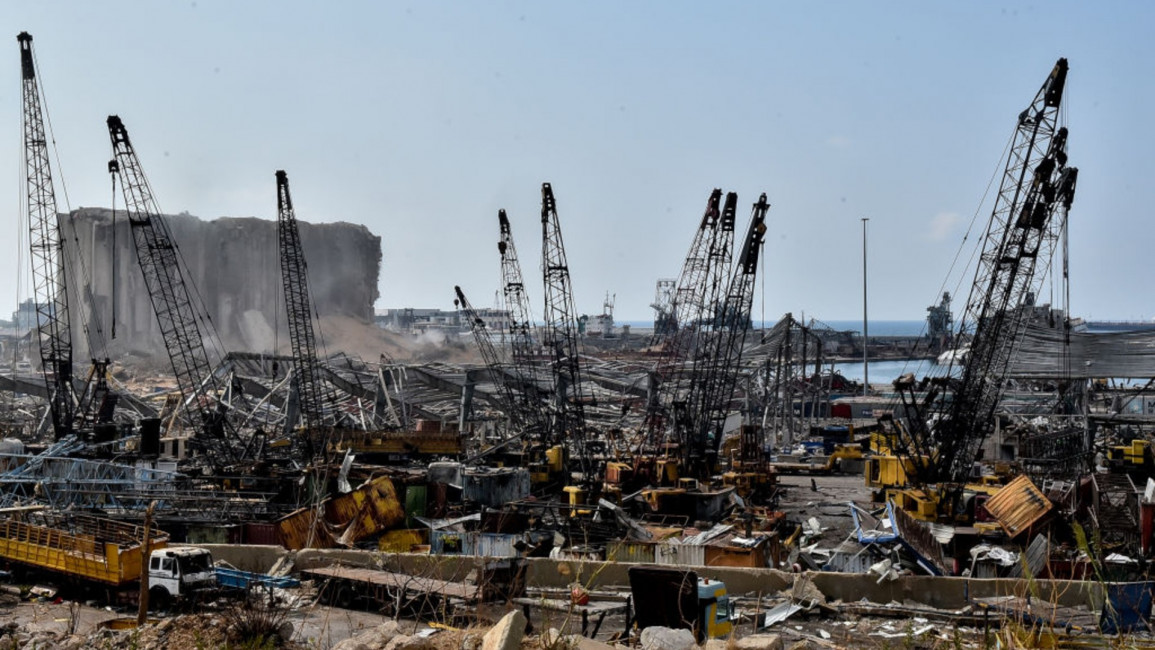
Beirut blast: 2,750 tonnes of government negligence
While the blast stole the breath of everyone in the country, and even of those 200kms away in Cyprus, the footage did the same for the rest of the world. Despite numerous theories, it became abundantly clear quite quickly that only one thing could be behind this homicidal manifestation: the Lebanese government's monumental negligence.
If DJ parties in Tripoli and inflatable pools in Jounieh were symbols of Lebanon's character during the October Revolution, the rubble currently occupying large swathes of the city has turned Beirut's famous resilience into something more palpable: rage.
The Lebanese president is blocking calls for an impartial international investigation. But the Lebanese people are under no illusions about who should be held responsible. It doesn't matter who lit the match, because the wick had been collectively laid and doused with gas for the last half century, or more. Still, investigations are yet to begin.
The ruling class has built a system based on corruption and patronage. Numerous reports about the imminent danger had been delivered to the judiciary and government leaders over the last few years. Warning after warning was ignored.
For so long, violence has been distributed by the Lebanese state in subtle ways. Less power, less water, less clean air, allowing the vulnerable to live in poverty while the pockets of their leaders' European designer suits, filled with foreign currency. They pilfered our land, our backbreaking labour and destroyed the seeds of our futures before they could even begin to sprout.
 |
Only one thing could be behind this homicidal manifestation - the Lebanese government's monumental negligence |  |
With no paths left to crawl, nearly every Lebanese was left suffocating, on final breaths - strangled out of our homeland by the greasy tentacles of the ruling class.
On August 4, 2,750 tonnes of government negligence blew through the houses that were built to provide shelter to our Beiruti brothers and sisters. Without discrimination, it ripped through our skin, steel, cartilage and concrete, tissue and tile. On the grand scale of things, all our lives are but a snap of God's fingers, both in length and in profundity.
Yet some, like the three-year-old girl who was killed by this negligence will only ever smile, laugh, cry, run, fall, taste, give and receive love, inhale and exhale, and do all the other beautiful things we do as humans, a mere fraction of the times that she should have.
And she's not alone. These stories are legion. A man who managed to call his family from under the rubble was finally found just three hours too late. Would he have lived if the government and the political parties had not abandoned the people to dig through the rubble with only our own hands?
|
And this injustice has sent Beirut and many who inhabit the 10,452 square kilometres of Lebanese territory into a blind rage never felt before. After being suffocated slowly for years and then instantly in Tuesday's blast, the Lebanese are no longer ready to rise above through just peaceful protest. Instead, Malcolm X's words from Declaration of Independence (1964) come to mind: "Be peaceful, be courteous, obey the law, respect everyone; but if someone puts his hand on you, send him to the cemetery."
"Bring out the nooses" has gone viral. Effigies have been hung in Martyrs Square of the various sectarian warlords-cum-leaders. Security forces have tried repelling protesters with live ammunition, making it clear how the state has decided how to respond.
Today, the character trait that our leadership misinterpreted as meekness and the international media mislabeled resilience has been reappropriated. Beirut has not risen from the ashes like a phoenix. A more appropriate metaphor might be Scylla, a beautiful nymph of Greek mythology spited by Circe's jealousy, and turned into a human-eating sea monster with four eyes and six long snake-necks.
 |
The men who slowly bled the populace dry of money, health, and above all, dignity, continue to roam free |  |
Resilience may have turned to rage. Or it may have been bubbling under the Lebanese port all along. And now this ruling class has to contend with a spiteful, revenge-thirsty monster of their own creation with an even thicker skin.
Protesters have expressed their rage. And they've swiftly been arrested. Their crimes include stepping on the president's image and "destruction of property".
This precedent is set to get even worse. On 13 August, parliament voted overwhelmingly to give the Lebanese army sweeping powers. Only one parliamentarian stood opposed. They can't agree to give the Lebanese people electricity or water, but they can agree on this. Many in civil society fear this will mean more repression, more state violence, a further crackdown on freedom of speech and assembly. In short - more violence.
Meanwhile, the men who slowly bled the populace dry of money, health, and above all, dignity, continue to roam free. If the authorities are so angry about disrespect of authority and "property destruction", wait until they get around to inspecting the damage the blast; their blast, has caused.
Justin Salhani is a writer and journalist living in Paris, France. He was previously based in Washington, DC and Beirut, Lebanon.
Follow him on Twitter: @JustinSalhani
Have questions or comments? Email us at: editorial-english@alaraby.co.uk
Opinions expressed in this article remain those of the author and do not necessarily represent those of The New Arab, its editorial board or staff.




